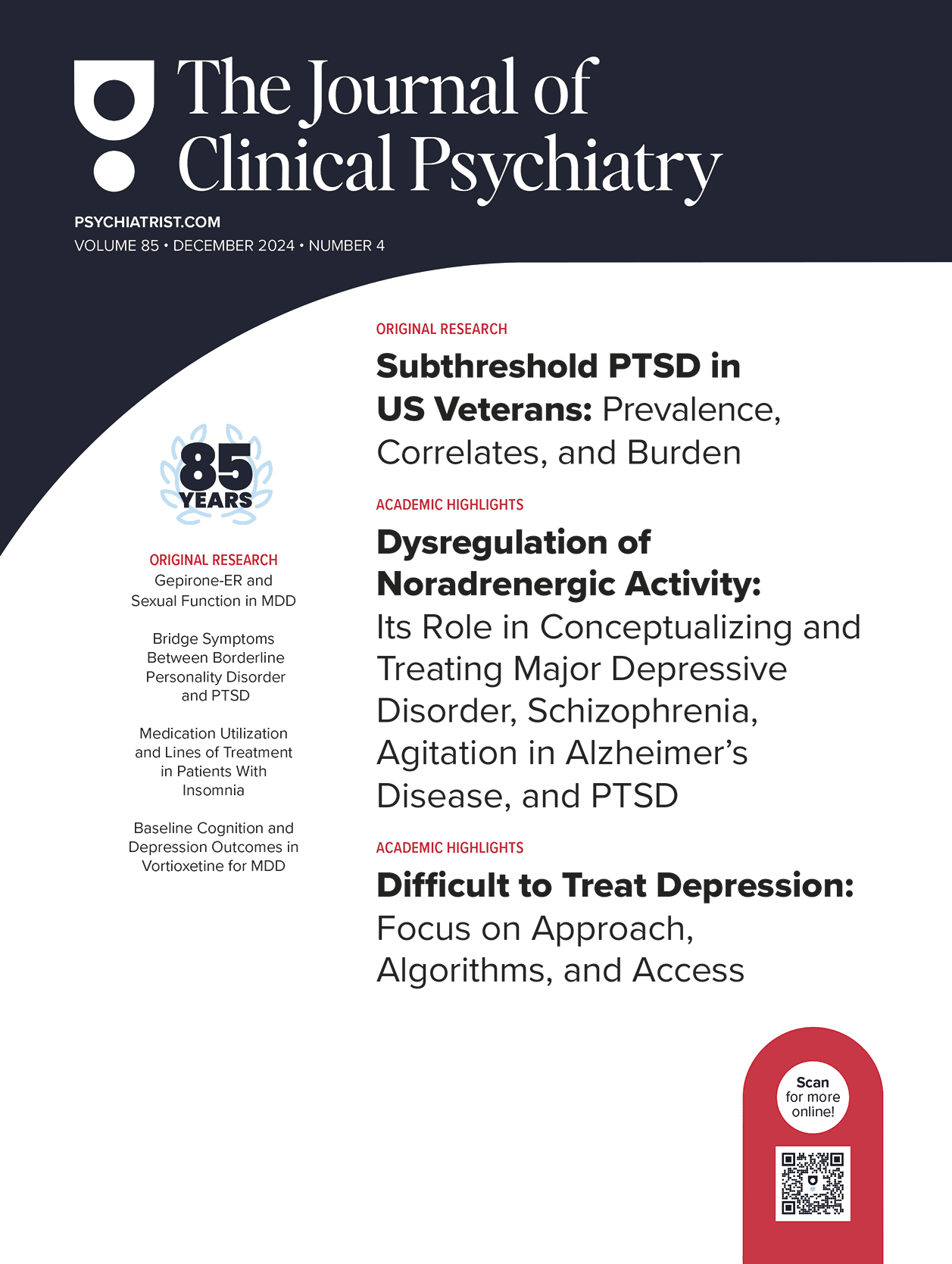Background: The prevalence of generalized anxiety disorder (GAD) represents an important public health issue. Hydroxyzine, an antagonist of histamine receptors, showed both efficacy and safety in previous short-term double-blind studies over placebo in this pathology. The aim of the current study was to confirm those positive results over a 3-month period in adult outpatients.
Method: This multicenter, parallel (hydroxyzine [50 mg/day]; bromazepam [6 mg/day]), randomized, double-blind, placebo-controlled trial included 2 weeks of single-blind run-in placebo, 12 weeks of double-blind randomized treatment, and 4 weeks of single-blind run-out placebo. Three hundred thirty-four of 369 selected outpatients with a diagnosis of GAD according to DSM-IV criteria and a Hamilton Rating Scale for Anxiety (HAM-A) total score >= 20 were randomized before entering the double-blind period. The primary outcome criterion was the change in the HAM-A score from baseline to 12 weeks of double-blind treatment with hydroxyzine compared with placebo.
Results: In the intent-to-treat analysis, the mean ± SD change in HAM-A scores from baseline to endpoint was -12.16 ± 7.74 for hydroxyzine and -9.64 ± 7.74 for placebo (p = .019). Results at endpoint for percentage of responders (p = .003) and remission rates (p = .028), Clinical Global Impressions-Severity scale score (p = .001), maintenance of efficacy (p = .022), and Hospital Anxiety and Depression scale score on day 84 (p = .008) also confirmed the efficacy of hydroxyzine over placebo. The study showed no statistically significant difference between hydroxyzine and bromazepam. Except for drowsiness, which was more frequent with bromazepam, safety results were comparable in the 3 groups.
Conclusion: Hydroxyzine showed both efficacy and safety in the treatment of GAD and appears to be an effective alternative treatment to benzodiazepine prescription.
Please sign in or purchase this PDF for $40.00.
Save
Cite




